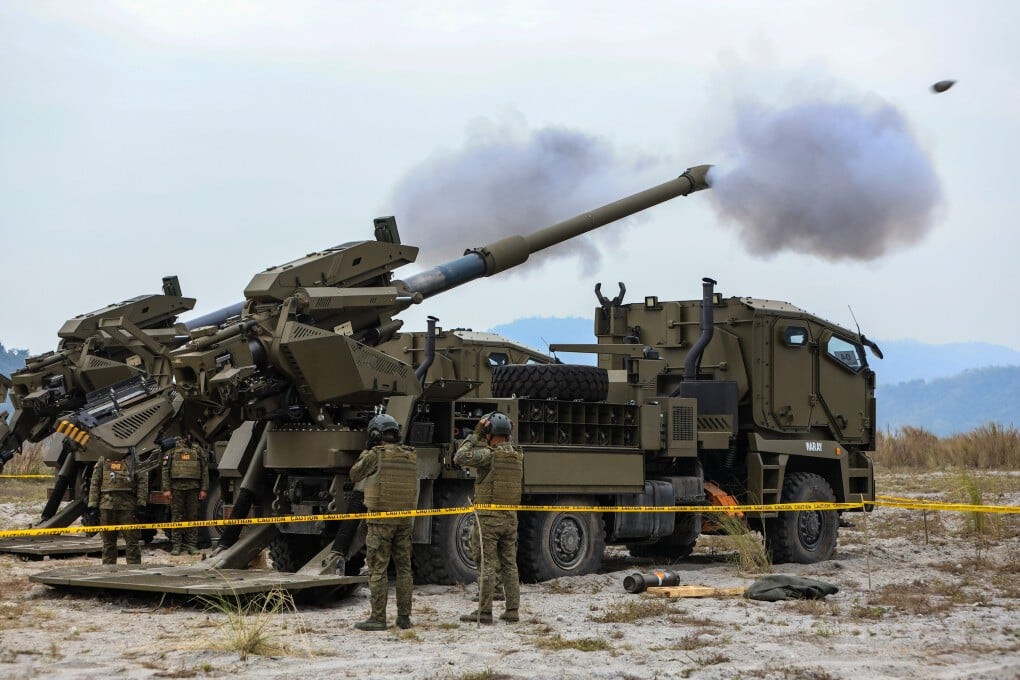
The Philippines is pursuing military modernization through its ‘Re-Horizon 3’ program, allocating a budget of $35 billion. However, persistent funding issues and vague legislation raise questions about the Philippines' ability to achieve these defense objectives.
The Philippines' ambition for military modernization is back on track with the Re-Horizon 3 program. This program was restructured in January 2024, after the two previous Horizon phases were delayed due to funding shortages. Re-Horizon 3 plans various procurement programs over the next decade, with a total budget of $35 billion allocated. The Philippine government demonstrated its commitment to developing its domestic defense industrial base and investing in defense research and development through the ‘Self-Reliant Defense Posture Revitalization Act,’ signed in October 2024.
However, it remains unclear how the Philippines will fund the final phase of the Horizon program and build its defense industry readiness. Over the past decade, the Philippines' funding shortages have led the Armed Forces of the Philippines (AFP) to procure advanced equipment at lower costs from non-U.S. suppliers and to seek government-to-government industrial cooperation to foster domestic defense industries.
Footprint of the Horizon Program
The AFP originally prioritized new equipment investments in a three-phase Horizon modernization program, spanning 15 years in five-year increments until 2028. Horizon 1 (2013-17) and Horizon 2 (2018-22) focused on establishing minimum defense requirements and enhancing internal security operations, while the final phase aimed to procure more complex platforms for deterrence capabilities.
In Horizon 1, the AFP completed only 68% of its 53 planned modernization programs, spending 96 billion Philippine Pesos (approximately $1.82 billion), a 28% increase from its initial budget of 75 billion Philippine Pesos (approximately $1.77 billion). Five of the AFP's highest-profile programs from 2013-17 were procured from non-U.S. suppliers, including Indonesia, the Republic of Korea (ROK), Spain, and the United Kingdom, totaling 49.26 billion Philippine Pesos (approximately $1.08 billion).
These included two Tarlac-class landing platform docks from PT PAL of Indonesia, three Airbus C295 light transport aircraft, 12 FA-50PH Fighting Eagle aircraft from Korea Aerospace Industries (KAI), two Leonardo AW159 Wildcat anti-submarine helicopters, and two Jose Rizal-class frigates (excluding weapon package costs) from HD Hyundai Heavy Industries (HD HHI).
Horizon 2 saw the AFP underperform, completing only 20% of its 97 scheduled projects, costing 428.6 billion Philippine Pesos (approximately $7.87 billion), a 43% increase from the originally estimated 300 billion Philippine Pesos (approximately $5.7 billion). Phase 2 involved more modern platforms procured between 2018 and 2022, notably from non-U.S. suppliers like the Republic of Korea and Israel.
Over 102.79 billion Philippine Pesos (approximately $2 billion) were allocated for the procurement of two Miguel Malvar-class frigates and six offshore patrol vessels from HD HHI of the Republic of Korea. Additionally, nine Nestor Acero-class fast attack interdiction crafts from Israel Shipyards, 20 Sabrah ASCOD light tanks and armored recovery vehicles from Elbit Systems, nine Hermes 900 and four Hermes 450 intelligence, surveillance, and reconnaissance unmanned aerial vehicles, and nine SPYDER-MR self-propelled surface-to-air missile systems from Rafael Advanced Defense Systems were procured.
Modernization Readjustment?
Over the past decade, several key contracts in the first two phases of the Horizon program were delayed primarily due to budget constraints and a change in government in June 2022, at the end of Horizon 2. The administration of President Ferdinand Marcos Jr. conducted a priority review of contracts not signed in previous phases, including up to 12 multi-role fighter (MRF) aircraft and diesel-electric propelled submarines. Despite additional funding to revive the Philippines' military modernization program, the current government decided to restructure the original five-year (2023-28) ‘Horizon 3’ into ‘Re-Horizon 3,’ extending it to a 10-year period.
However, merely rebranding and repackaging the AFP modernization program has not addressed the Philippines' unique and persistent challenges. It is also unclear whether the 17 unfinished projects from Horizon 1 and 78 unfulfilled projects from Horizon 2, in addition to the original 37 planned programs of Horizon 3, will be carried over to the restructured Re-Horizon 3. Furthermore, it is questionable whether the planned $35 billion budget will be sufficient for the AFP's wish list over the next decade.
To date, the AFP has confirmed that Re-Horizon 3 will include two diesel-electric submarines, more than 12 MRF aircraft (likely F-16 C/D Block 70/72), an additional 12 FA-50 Fighting Eagle aircraft, two more patrol or frigates, offshore patrol vessels, fast attack craft, S-70 Black Hawk helicopters, additional air defense, ground/underwater, and missile systems, and cyber systems.
Through the Self-Reliant Defense Posture Revitalization Act, the Philippines now aims to develop its defense industrial capabilities through technology transfer and investment from foreign partners. It also aims to promote domestic production facilities beyond local assembly lines. However, the vague and general wording of this law leaves questions about the Philippines' ability to achieve its ambitions for a self-reliant defense industrial capability. The law does not provide detailed guidelines for industrial stakeholders and could offer international companies more opportunities to exploit supply chains, potentially disadvantaging domestic industries.
The Philippines' military modernization efforts face fundamental challenges in establishing a sustainable domestic defense industrial base and securing efficient funding mechanisms. Can the Philippines overcome these difficulties and achieve genuine enhancement of its defense capabilities?
[Copyright (c) Global Economic Times. All Rights Reserved.]




























